What is the Best Commercial Roofing Material? The Full Guide
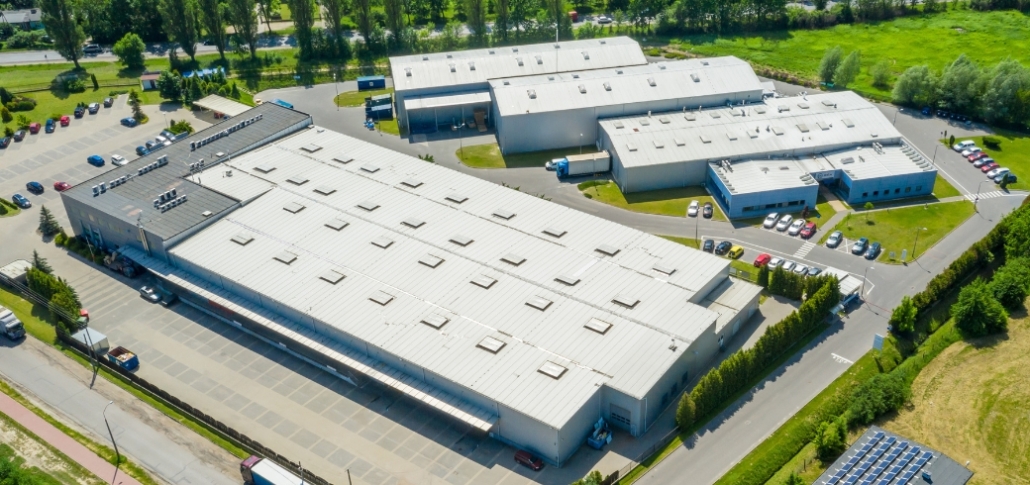
When deciding what is the best commercial roofing material, it’s not just about price. The right choice means better protection, improved energy efficiency, and fewer headaches for your business down the road.
The top commercial roofing materials include TPO, EPDM rubber, PVC, Built-Up Roofing (BUR), Modified Bitumen, Duro-Last, Metal Roofing, Asphalt Shingles, Tile, Slate, Green Roofs, and Spray Foam. Each material offers unique advantages depending on your building’s needs, local climate, and budget. For New England properties, weather resistance, energy savings, and durability are key factors. Business owners should consider their facility’s specific demands before making a choice.
So, what are the best commercial roofing materials?
Here’s a quick list of the best options for commercial buildings:
- TPO Roofing Systems
- EPDM Rubber Roofing
- PVC Roofing Systems
- Built-Up Roofing (BUR)
- Modified Bitumen Roofing
- Duro-Last Custom-Fabricated Roofing
- Metal Roofing (Steel, Aluminum, Copper)
- Asphalt Shingle Roofing
- Spray Foam Roofing
In this guide, we’ll break down the pros and cons of each option to help you confidently choose the best roofing material for your commercial property.
1. TPO Roofing Systems (Thermoplastic)
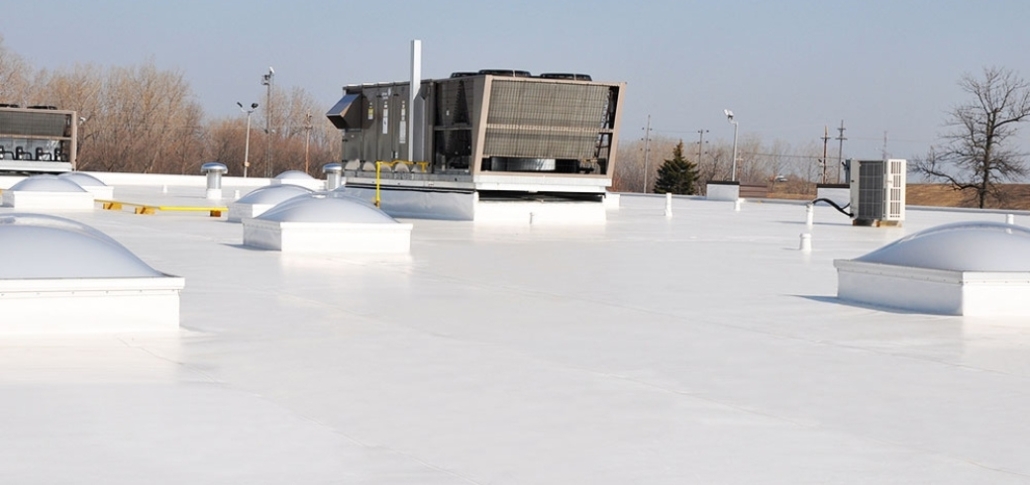
One of the fastest-growing commercial roofing solutions, known for its cost-efficiency and reflective properties. Designed for flat and low-slope roofs, TPO helps combat New England’s fluctuating temperatures by reducing heat absorption in summer and resisting cracking in cold winters.
Key Benefits of TPO Roofing Systems
| Benefit | Description |
| Energy Efficiency | TPO’s white reflective surface reduces heat absorption, lowering energy bills by keeping interiors cooler during hot summers. |
| Durability | Resistant to punctures, tears, and chemical exposure, making it ideal for high-traffic commercial roofs. |
| Affordability | TPO offers a competitive upfront cost, delivering excellent value over its lifespan with reduced energy and maintenance expenses. |
| Ease of Installation | Lightweight and flexible, TPO membranes allow for faster installation, minimizing downtime for businesses. |
For warehouses, shopping centers, and large commercial buildings, TPO offers a balanced combination of performance and value. Its popularity stems from its ability to meet modern energy codes while keeping project costs manageable. If you’re aiming for a durable roofing solution that performs well against New England’s weather, TPO is a solid contender.
2. EPDM Roofing
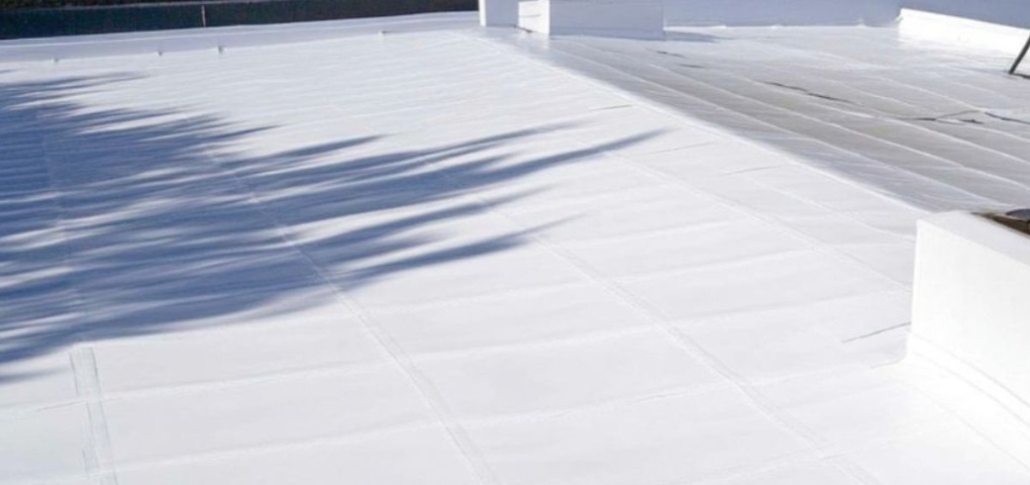
Second to our list is EPDM, a time-tested synthetic rubber membrane used in commercial roofing for decades. Known for its flexibility and weather resistance, EPDM is especially effective in harsh climates like Massachusetts and Rhode Island, where extreme temperature swings are common.
Key Benefits of EPDM Roofing
| Benefit | Description |
| Weather Resistance | EPDM withstands extreme temperatures, UV rays, hail, and heavy rain, making it ideal for New England’s climate. |
| Longevity | With proper maintenance, EPDM roofs can last up to 30 years, offering reliable long-term protection. |
| Cost-Effective | Among the most affordable commercial roofing solutions for large flat surfaces. |
| Ease of Repair | Simple patching and maintenance keep repair costs low over the roof’s lifespan. |
For industrial facilities and large commercial buildings seeking reliable protection on a budget, EPDM delivers. While it may not offer the reflective properties of TPO, its durability and low cost make it an excellent choice for facility managers prioritizing function over aesthetics. EPDM remains a dependable commercial roofing material that gets the job done without breaking the bank.
3. PVC Roofing Systems
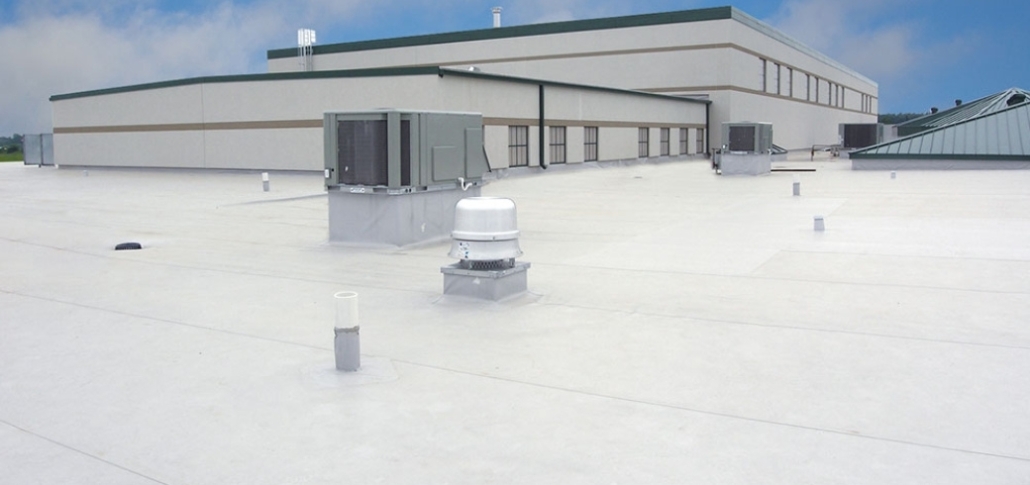
PVC (Polyvinyl Chloride) roofing systems are known for their superior chemical resistance and longevity. Often used in restaurants, factories, and buildings with rooftop HVAC systems, PVC provides reliable protection against grease, chemicals, and fire.
Key Benefits of PVC Roofing Systems
| Benefit | Description |
| Chemical Resistance | Ideal for environments exposed to oils, fats, and harsh chemicals, such as restaurants and factories. |
| Fire Retardant | Offers superior fire resistance, enhancing overall building safety. |
| Energy Efficiency | Reflective surface reduces rooftop temperatures, helping lower cooling costs. |
| Durability | Heat-welded seams create a watertight barrier, preventing leaks and reducing maintenance needs. |
PVC roofs are a smart investment for businesses requiring a durable roofing solution that can withstand tough environmental conditions. Though slightly more expensive than TPO or EPDM, PVC’s enhanced durability and low maintenance needs justify the investment for many commercial properties. If your building operations involve chemicals or high heat, PVC offers peace of mind.
Ready to Upgrade Your Roof with PVC? Contact National Roofing & Solar today for a free consultation.
4. Built-Up Roofing (BUR)
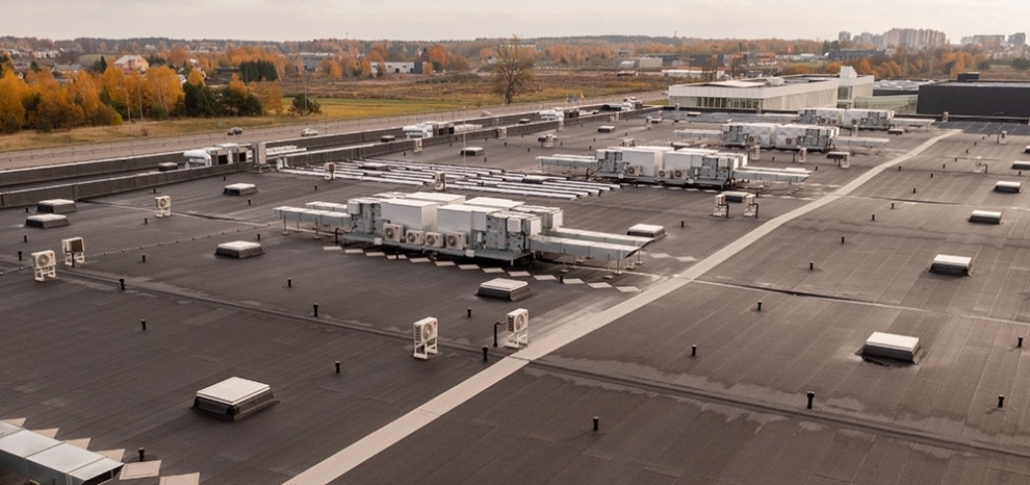
Next is Built-Up Roofing (BUR) systems that have been a staple in commercial roofing for over a century. Composed of multiple layers of bitumen and reinforcing fabrics, BUR systems create a waterproof membrane topped with gravel or reflective coatings.
Key Benefits of Built-Up Roofing
| Benefit | Description |
| Multi-Layer Protection | Multiple layers of bitumen and fabric create a tough, waterproof membrane for superior defense. |
| Thermal Performance | Excellent insulation properties help stabilize indoor temperatures, lowering energy costs. |
| Proven Longevity | BUR systems have a track record of lasting 20-30 years with regular upkeep. |
| Cost-Effective for Large Roofs | A practical solution for large-scale commercial buildings needing budget-friendly coverage. |
BUR’s tried-and-true performance makes it ideal for large commercial buildings seeking robust, long-lasting protection. While it requires more labor to install, the layered system provides exceptional durability and resistance to heavy foot traffic. For property managers seeking a reliable commercial roofing material with a track record of success, BUR remains a strong option.
Request A Free Quote
Speak To Our Roofing Specialists Today!
National Roofing & Solar offers expert commercial roof replacements, leak repairs, and solar upgrades, maximizing energy efficiency and ROI.
5. Modified Bitumen Roofing
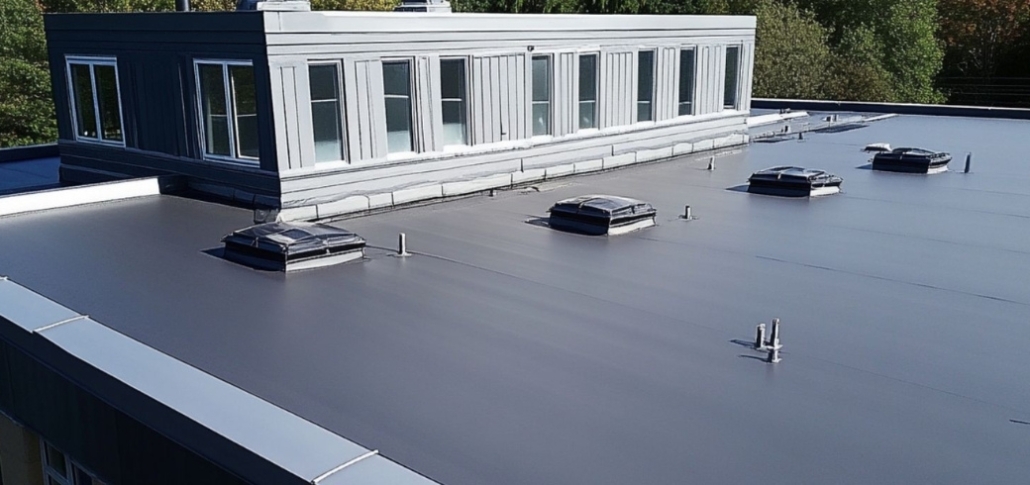
Modified Bitumen Roofing is an evolution of BUR systems, enhanced with polymer-modified asphalt for improved elasticity and strength. It’s designed to withstand extreme temperatures and is widely used in commercial and industrial facilities across New England.
Key Benefits of Modified Bitumen Roofing
| Benefit | Description |
| Flexibility | Engineered to handle temperature extremes, preventing cracks and splits. |
| Durability | Enhanced resistance to punctures, heavy foot traffic, and environmental stress. |
| Versatile Application | Can be installed using heat, cold adhesives, or self-adhesive sheets for project flexibility. |
| Easy Maintenance | Straightforward repairs keep long-term maintenance costs manageable. |
Modified Bitumen offers the layered protection of BUR with added flexibility, making it ideal for buildings facing frequent temperature fluctuations. Its robust nature ensures excellent waterproofing and long-term performance. For businesses needing a cost-effective yet durable roofing solution, Modified Bitumen is a practical choice that delivers reliability without overcomplicating maintenance.
6. Duro-Last Custom-Fabricated Roofing Systems
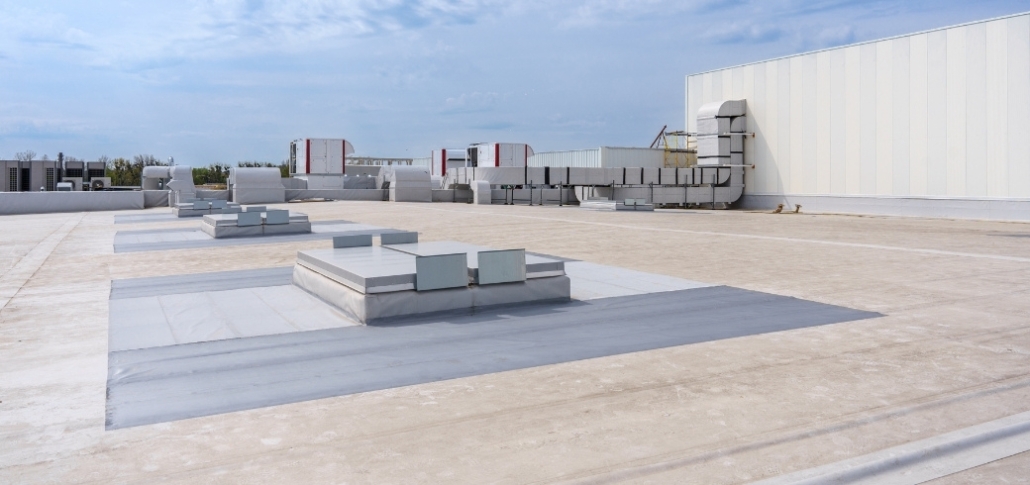
Next is Duro-Last, one of leading brands in custom-fabricated PVC roofing systems, designed to fit each roof precisely, reducing onsite waste and speeding up installation. Known for its durability and low maintenance, Duro-Last is a preferred choice for schools, shopping centers, and other large commercial properties.
Key Benefits of Duro-Last Custom-Fabricated Roofing
| Benefit | Description |
| Custom-Fabrication | Prefabricated to exact building specs, ensuring a precise fit and reducing leaks. |
| Durability | High resistance to punctures, UV rays, and chemical exposure for long-term performance. |
| Energy Efficiency | Reflective white membrane helps reduce cooling costs and supports sustainability goals. |
| Strong Warranties | Backed by industry-leading warranties covering both materials and installation. |
Duro-Last’s precision manufacturing and proven durability make it a top choice for facility managers seeking peace of mind. Its seamless installation reduces the risk of leaks, while its reflective surface enhances energy efficiency. If you’re considering commercial roofing solutions with minimal disruption and long-term benefits, Duro-Last is an investment that pays off.
7. Metal Roofing for Commercial Buildings

Metal roofing is one of the most durable and long-lasting commercial roofing materials available today. Whether using steel, aluminum, or copper, metal systems provide superior protection against New England’s harsh winters, heavy snow loads, and strong winds. Their sleek appearance also adds a modern look to commercial properties.
Key Benefits of Metal Roofing for Commercial Buildings
| Benefit | Description |
| Exceptional Durability | Metal roofs can last 40–70 years, resisting corrosion, fire, and impact damage with minimal maintenance. |
| Energy Efficiency | Reflective coatings reduce heat absorption, helping lower energy bills in the summer months. |
| Sustainability | Often made from recycled materials and fully recyclable at end of life, supporting green building initiatives. |
| Low Maintenance | Requires minimal repairs over its lifespan, making it cost-effective long term. |
For businesses asking what is the best commercial roofing material for long-term investment, metal roofing is a top-tier choice. It’s especially popular for warehouses, industrial facilities, and large commercial buildings needing robust protection and aesthetic appeal.
Though the initial cost is higher, metal roofs offer unmatched durability and energy savings that deliver a high return on investment. If longevity and performance are your priorities, metal roofing stands out as a smart, future-proof solution.
Ready to Upgrade Your Roof with Metal? Get in touch with National Roofing & Solar for a free consultation. Our team will guide you to the ideal metal roofing solution tailored for your commercial property.
8. Asphalt Shingle Roofing
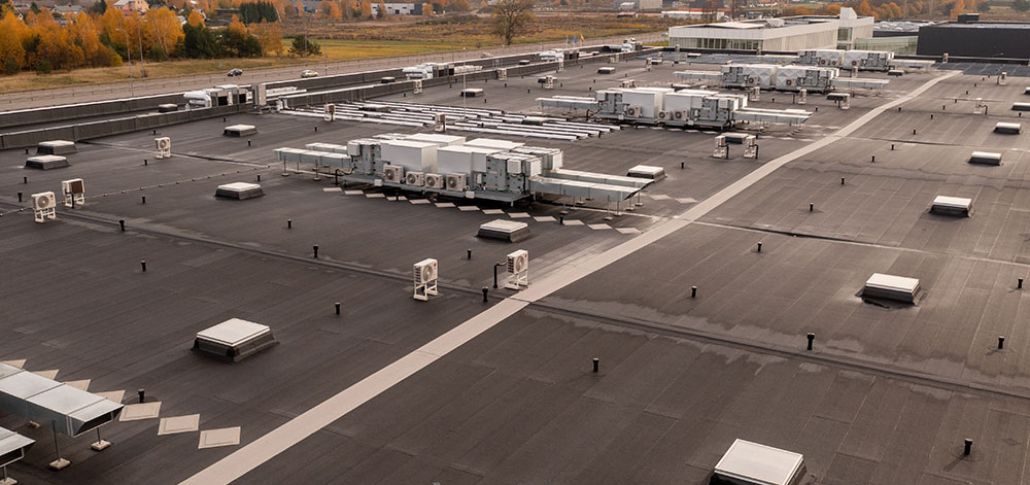
Asphalt shingles are more commonly associated with residential roofing but can also be used on smaller commercial buildings. For businesses seeking an affordable, straightforward solution, asphalt shingles provide decent durability and a wide variety of styles and colors.
Key Benefits of Asphalt Shingle Roofing
| Benefit | Description |
| Cost-Effective | Asphalt shingles offer one of the most affordable roofing solutions for small-scale commercial properties. |
| Ease of Installation | Simple and fast to install, reducing labor time and overall project costs. |
| Variety of Styles | Available in numerous colors and styles, allowing for aesthetic customization. |
| Adequate Durability | With proper care, asphalt shingle roofs can last 15–25 years, providing reliable protection for low-traffic commercial buildings. |
While asphalt shingles may not be the first answer when considering what is the best commercial roofing material, they remain a viable option for small offices, retail spaces, and low-slope roofs where budget is a primary concern.
However, their shorter lifespan and higher maintenance needs make them less suitable for larger or high-traffic commercial properties. For small-scale projects needing a quick and economical roofing solution, asphalt shingles get the job done.
Request A Free Quote
Speak To Our Roofing Specialists Today!
National Roofing & Solar offers expert commercial roof replacements, leak repairs, and solar upgrades, maximizing energy efficiency and ROI.
9. Spray Foam Roofing / Insulation Systems
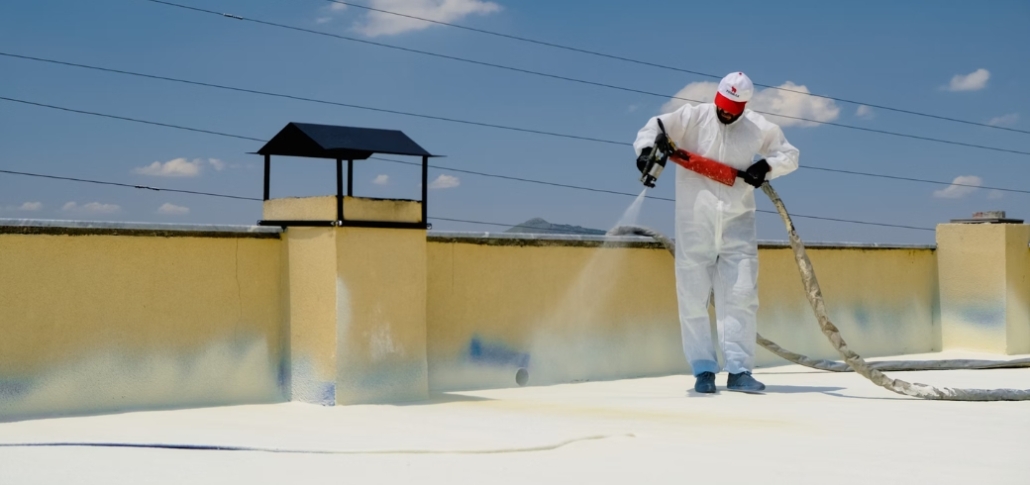
Lastly, the Spray polyurethane foam (SPF) roofing is a seamless, lightweight solution that provides both roofing and insulation benefits. Applied as a liquid that expands into foam, SPF creates a monolithic layer over existing roofs, making it ideal for irregular or complex roof shapes.
Key Benefits of Spray Foam Roofing / Insulation Systems
| Benefit | Description |
| Seamless Waterproofing | Spray polyurethane foam (SPF) creates a monolithic, watertight barrier over the entire roof surface. |
| Superior Insulation | High R-value significantly reduces energy loss, improving building efficiency. |
| Lightweight & Versatile | Can be applied to irregular roof shapes without adding structural load. |
| Low Maintenance | SPF roofs require minimal upkeep and can be recoated to extend service life. |
When evaluating what is the best commercial roofing material for energy efficiency and waterproofing, spray foam roofing stands out. Its versatility and insulating power make it popular for warehouses, manufacturing plants, and older buildings needing retrofit solutions. Though it requires professional installation and periodic recoating, its energy savings and ease of maintenance offer strong ROI. For businesses seeking a modern, efficient roofing upgrade, spray foam is a smart choice.
Read More: Commercial Roof Replacement Process – Step-by-Step Guide
Best Material for Different Business Types
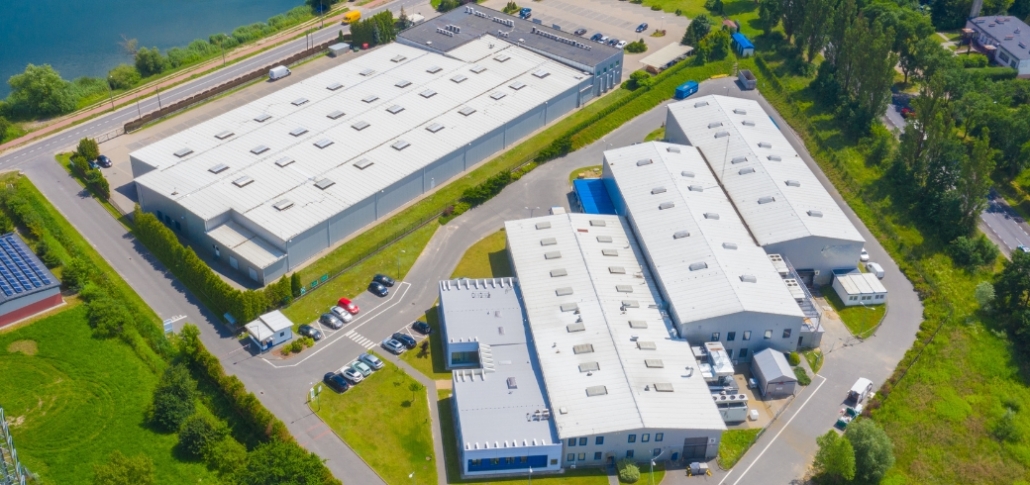
Choosing the right roofing materials for commercial buildings depends on how each property functions. From warehouses to schools, each type of facility has unique needs for durability, energy efficiency, and cost. Below, we’ll match the best roofing materials to specific business types to help you make an informed choice.
Warehouses
Warehouses require roofing materials that balance cost, durability, and energy efficiency. TPO roofing systems are often the top choice due to their reflective surface, which reduces cooling costs, and their resistance to punctures and tears.
For larger facilities, metal roofing is also popular, offering unmatched lifespan and minimal maintenance. Both options withstand New England’s harsh weather while delivering long-term value. Facility managers prefer these materials for their low upkeep and proven performance in large, flat-roof commercial applications.
Shopping Plazas
Shopping plazas need roofs that are durable, low-maintenance, and visually appealing. Duro-Last custom-fabricated roofing systems are an excellent fit, providing energy efficiency, fast installation, and superior leak prevention.
For multi-tenant properties, PVC roofing systems are also ideal, offering chemical resistance and longevity. Both materials meet the demands of high-traffic retail environments while supporting energy savings.
Property owners favor these solutions for their durability, aesthetic versatility, and ability to minimize business disruptions during maintenance.
Request A Free Quote
Speak To Our Roofing Specialists Today!
National Roofing & Solar offers expert commercial roof replacements, leak repairs, and solar upgrades, maximizing energy efficiency and ROI.
Schools and Educational Buildings
It demands roofing systems that prioritize safety, energy efficiency, and durability. Duro-Last roofing systems are highly recommended for educational facilities due to their long lifespan, reflective properties, and minimal maintenance requirements.
Modified Bitumen roofing is another strong contender, offering excellent waterproofing and resistance to heavy foot traffic. Both options support sustainability goals while ensuring reliable protection for students and staff.
These materials help schools manage operational costs while providing a safe, long-lasting roofing solution.
Industrial Facilities
Industrial buildings face exposure to harsh chemicals, heavy equipment, and extreme weather. EPDM roofing is a go-to choice for its superior chemical resistance and ability to handle temperature fluctuations common in New England.
For facilities needing robust, long-term performance, metal roofing systems offer unmatched durability and fire resistance. Both materials are favored for their resilience, easy maintenance, and cost-effectiveness.
Industrial property managers trust these commercial roofing solutions to protect assets and ensure operational efficiency year-round.
Refer to this article if you’re interested in the best residential roofing materials.
Factors to Consider When Choosing Commercial Roofing Materials
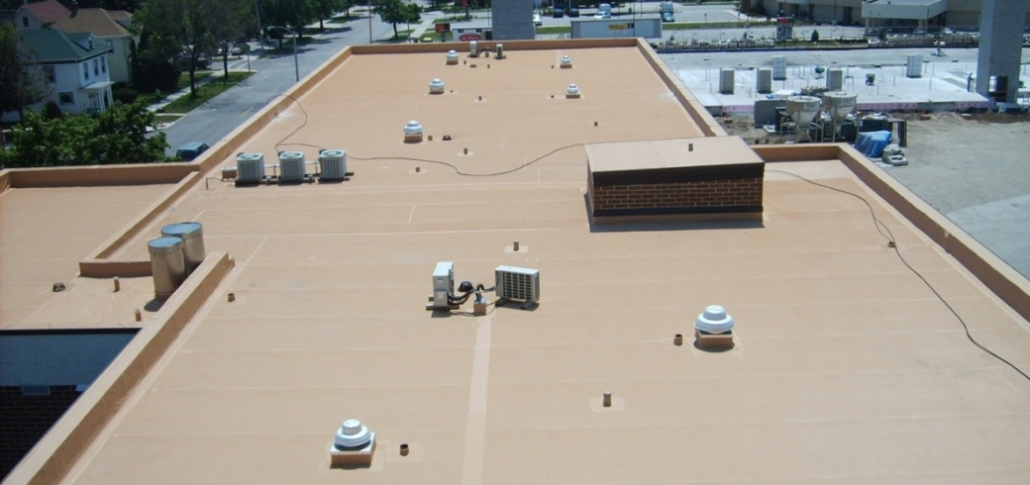
Selecting what is the best commercial roofing material isn’t a one-size-fits-all decision. Property owners must weigh multiple factors to ensure long-term performance and value. Here, we break down the key considerations to help you choose the right commercial roofing solution for your building’s needs.
Building Type and Function
The type and function of your commercial property heavily influence the best roofing choice. Warehouses and industrial facilities prioritize durable roofing solutions like TPO or metal for their longevity and resilience. In contrast, retail plazas and schools may require materials like PVC or Duro-Last for energy efficiency and minimal disruption.
A building’s usage dictates factors such as foot traffic tolerance, insulation needs, and visual appeal. Matching the roofing system to your property’s purpose ensures optimal performance and cost-effectiveness.
Climate and Weather Resistance
New England’s climate demands commercial roofing solutions that withstand heavy snow, ice, wind, and temperature fluctuations. Materials like EPDM excel in cold resistance, while TPO and metal roofing offer durability against harsh UV rays and snow loads.
Choosing a system designed for regional weather conditions prevents premature wear, reduces repair costs, and extends roof lifespan. Businesses in Massachusetts, Connecticut, and Rhode Island should prioritize roofing materials specifically engineered for severe Northeast weather to protect their investments.
Energy Efficiency and Sustainability
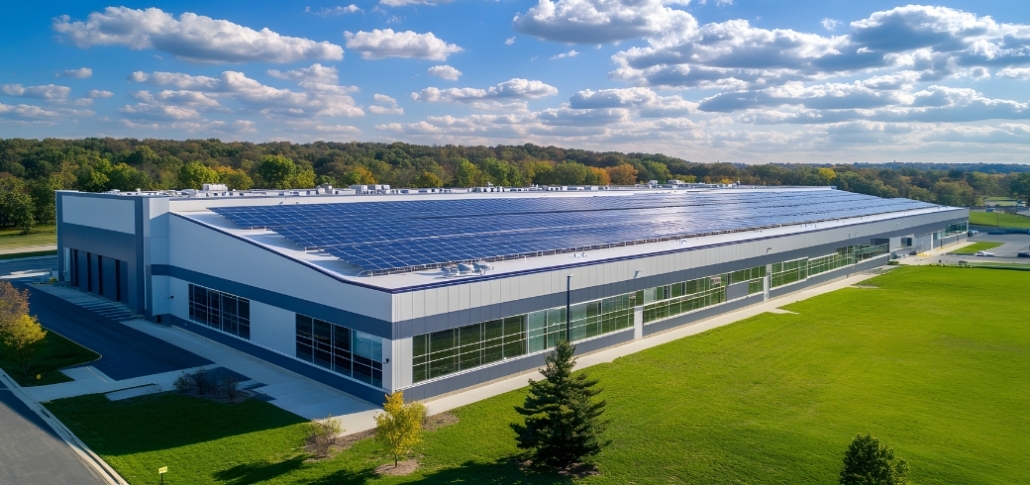
For eco-conscious businesses, energy efficiency and sustainability are top priorities. Reflective materials like TPO, PVC, and Duro-Last help reduce cooling loads, directly lowering energy bills. Green roofing systems add natural insulation while supporting environmental initiatives.
Sustainable commercial roofing solutions not only cut operational costs but may also qualify for tax incentives and LEED certifications. Choosing materials with high energy performance aligns with corporate responsibility goals while delivering long-term savings and enhanced building value.
Budget and Life-Cycle Cost
While upfront costs are important, the true value lies in life-cycle costs — factoring in maintenance, repairs, and energy savings. TPO and EPDM offer affordable installation with strong durability, while metal and slate require higher initial investment but last decades.
Evaluating long-term ROI helps property managers choose durable roofing solutions that minimize expenses over time. Balancing budget constraints with material longevity ensures your roofing investment pays off with fewer repairs and lower total ownership costs.
Request A Free Quote
Speak To Our Roofing Specialists Today!
National Roofing & Solar offers expert commercial roof replacements, leak repairs, and solar upgrades, maximizing energy efficiency and ROI.
Maintenance Requirements
Maintenance needs vary across roofing systems, impacting both operational budgets and building performance. Low-maintenance options like Duro-Last and metal roofing reduce ongoing upkeep, making them ideal for busy facilities. EPDM and modified bitumen, while durable, may require periodic inspections and repairs.
Selecting a commercial roofing solution with manageable maintenance demands helps prevent costly surprises. Prioritizing materials that offer easy, affordable upkeep ensures long-term protection and keeps your property in top condition without straining resources.
Need help finding the perfect roofing system for your building? Contact National Roofing & Solar today for a free, expert consultation and get personalized guidance on the best commercial roofing material for your property.
Costs and ROI of Roofing Materials

Understanding the costs and return on investment (ROI) of different roofing materials is essential for making smart decisions. From upfront installation expenses to long-term savings, every factor affects your bottom line.
Here’s what you need to know before starting a commercial roof installation or considering a commercial roof replacement.
Installation Costs
Installation costs vary widely depending on the material, roof size, and complexity. TPO and EPDM are among the most budget-friendly for large flat roofs, offering affordable installation with reliable performance.
Metal roofing and slate require higher upfront investments but deliver unmatched durability and long-term value. Labor intensity, access challenges, and customization (like Duro-Last systems) also influence pricing.
While initial costs are important, choosing the right material ensures fewer repairs and replacements, maximizing ROI. Evaluating total installation expenses alongside long-term benefits is key to a successful commercial roof installation project.
Longevity and Warranties
The lifespan of a roofing system directly impacts ROI. TPO and PVC roofs typically last 20–30 years, while EPDM can reach up to 30 years with proper care. Metal roofs often exceed 40–70 years, and slate can surpass 100 years, offering substantial long-term savings.
Warranty coverage is equally critical—materials like Duro-Last offer industry-leading warranties covering materials and labor. A well-backed warranty reduces future repair risks, enhancing the value of your commercial roof replacement investment. Longevity and strong warranty support translate into fewer disruptions and lower life-cycle costs.
Energy Savings and Tax Credits
Energy-efficient roofing materials like TPO, PVC, Duro-Last, and green roofs contribute to significant operational savings by lowering cooling demands. Reflective surfaces reduce rooftop heat absorption, cutting energy bills during peak seasons.
Additionally, businesses investing in sustainable commercial roof installations may qualify for tax incentives, such as the Federal Investment Tax Credit (ITC) and accelerated depreciation benefits.
These financial advantages enhance ROI while supporting corporate sustainability goals. Factoring in energy savings and available tax credits ensures a smarter, more cost-effective approach to commercial roofing investments.
FAQs
Metal roofing and slate are the most durable, with lifespans exceeding 50 years when properly maintained.
TPO offers an excellent balance of affordability, energy efficiency, and low maintenance, making it the most cost-effective choice for many businesses.
Duro-Last custom-fabricated roofing requires minimal maintenance thanks to its high durability and seamless installation.
Lifespans vary: TPO (20-30 years), EPDM (20-25 years), PVC (20-30 years), Metal (40-70 years), and Slate (50+ years).
TPO, PVC, and Green Roofing systems provide superior energy efficiency through reflective surfaces and natural insulation.
Request A Free Quote
Speak To Our Roofing Specialists Today!
National Roofing & Solar offers expert commercial roof replacements, leak repairs, and solar upgrades, maximizing energy efficiency and ROI.
Conclusion
Selecting what is the best commercial roofing material is a crucial decision that impacts your building’s protection, energy efficiency, and long-term costs. By carefully considering factors like building type, New England’s harsh weather, energy savings, and maintenance needs, you can choose a roofing solution that maximizes ROI and minimizes future expenses.
Whether it’s TPO, EPDM, Metal, or Duro-Last, the right material safeguards your investment and enhances your property’s value. Don’t leave this critical choice to guesswork.Contact National Roofing & Solar today for a free, expert consultation! Our team will guide you to the best solution for your business needs, ensuring durable, cost-effective protection for years to come.


